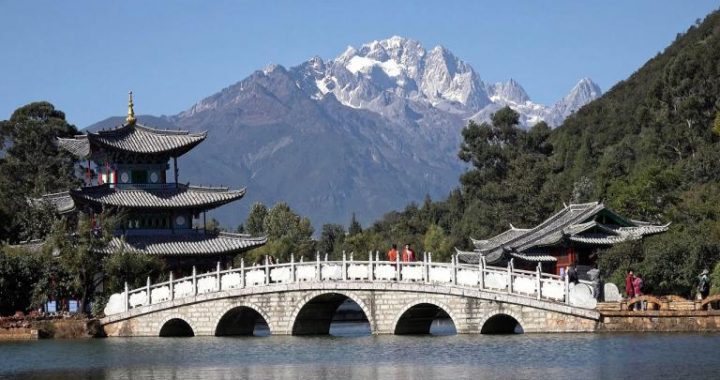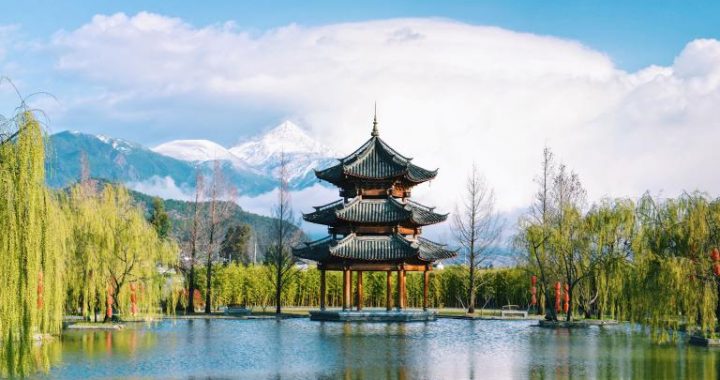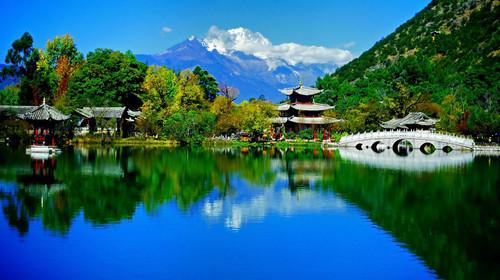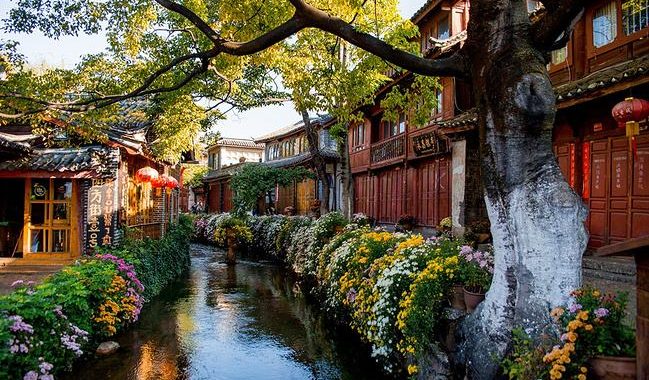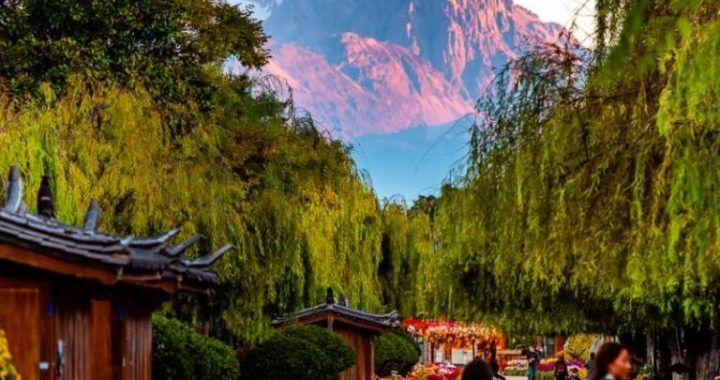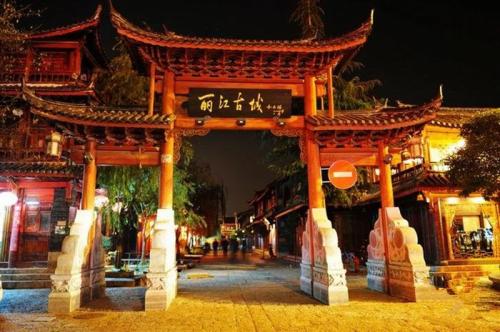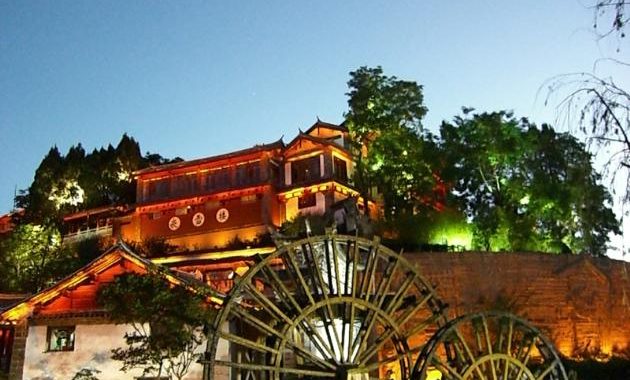Ancient Town of Lijiang
3 min read“The place the sun first shines upon is Jiantang in the east, and the most beautiful place in the human world is Shangri-la by the Naizi River.”This is a folk song of the Tibetan people describing the beautiful landscape in Yunnan. Shangri-la was originally a fictional place depicted in the 1933 novel Lost Horizon by British writer James Hilton(1900-19 54). It is a permanently happy land, isolated from the outside world. Today, Shangri-la has become synonymous with anyearthly paradise. The Shangri-la of the Tibetan folksong is a land of peace, with high snowcapped mountains, undulating forests, shining lakes, cattle and sheep grazing and frolicking on vast pasturelands, and with golden temples glimmering amidst white snow.
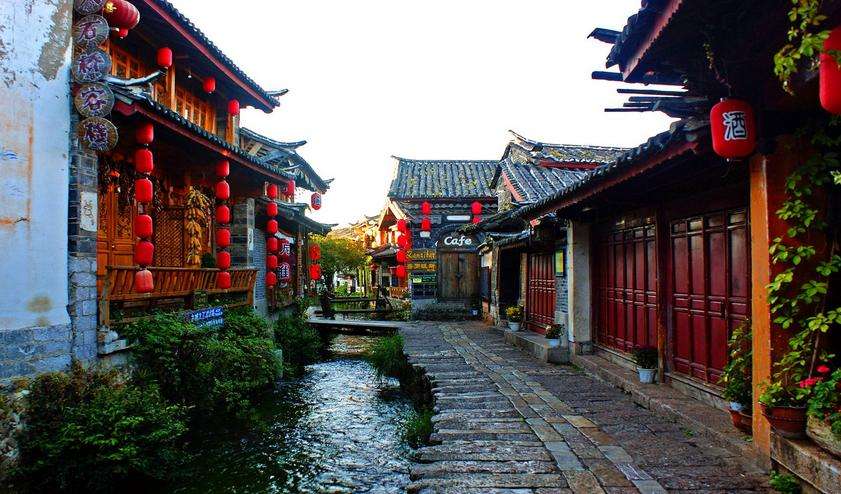
Resembling this haven of peace and nestled at the foot of snowcapped Yulong Mountain is the ancient town of Lijiang, which was built in the later half of the 1 3th century. More than 600 years have passed, yet the city is still in fine shape, home to generations of Naxi, Tibetan, Bai, Yiand Han people.
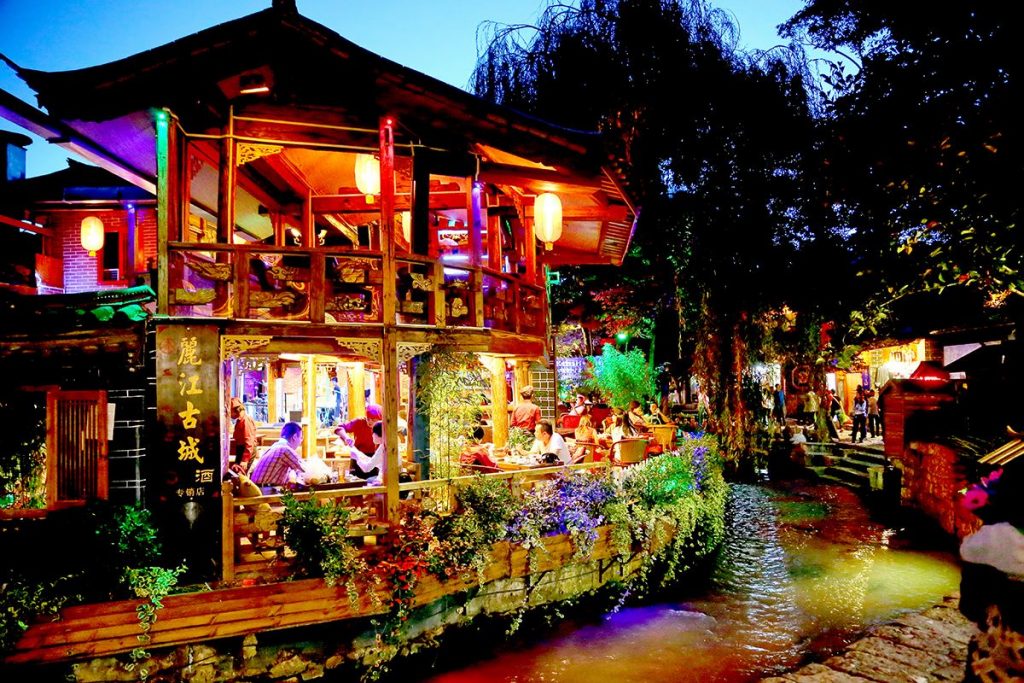
Aserene scene in Lijiang
The ancient town of Lijiang is as beautiful as Yulong Mountain, and as mysterious andpeaceful as Shangri-la. Shangri-la, in Tibetan language, means “the sun and moon of the heart;”and this ancient town is indeed the sun and moon within the heart of the Naxi people.
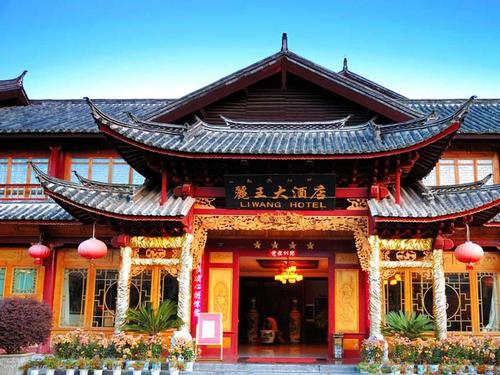
Harmony between humans and nature was the lofty pursuit of the developers of this ancient town. Surrounded on three sides by high mountains, the town is home to several thousand households. All the houses face south to receive the blessings of sunshine from nature. Residents here plant trees along the streets and flowers at home. If you walk aroundthis ancient, tranquil town on an early summer morning, you find the refreshing fragrance of flowers in every corner of the place.
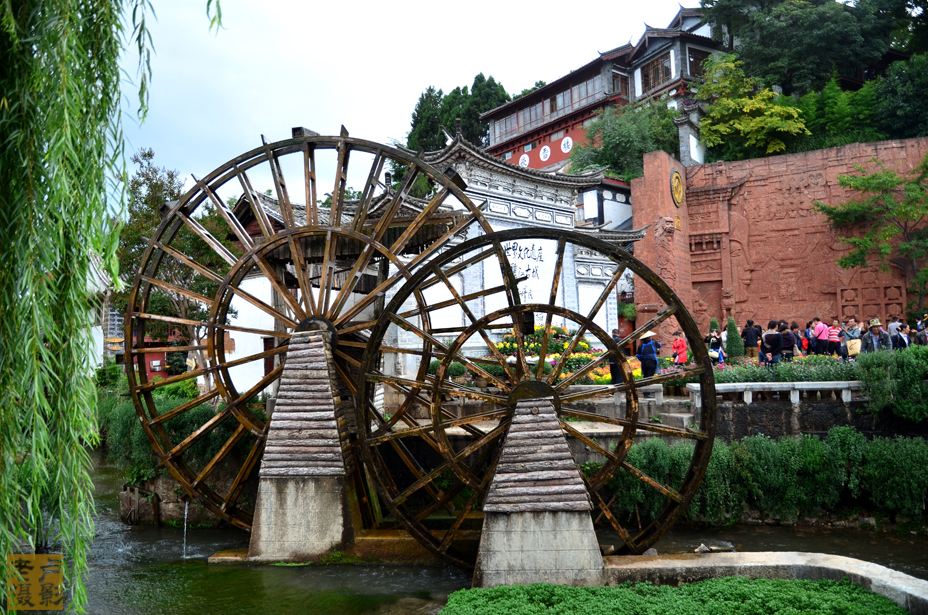
Unlike other towns, this ancient town has neither wide streets nor a strictly planned layout; everything seems to come from nature, free and unaffected. The town spreads outward without painstakingly pursuing a predestined order. Like unencumbered vines climbing upward, it develops freely in response only to the power of nature.

A smal bridge in the ancientown of Lijiang
The water system in Lijiang also expresses such freedom. The town’s existence depends on water, while the water flows through or around the town wherever necessary. Northeast of Lijiang is the Black Dragon Pool, which gathers the water of melted snows from the high mountains, and then distributes it to every lane and every house along the narrow streets.
Streets and lanes meander side by side along the brooks, with houses built over the water, so each household has water flowing past their home. There are nearly a thousand bridges of different sizes and types: arched stone bridges, level bridges, bridges for horse-drawn carts, bridges with carvings, and bridges over very narrow waters that people could actually stride over. The last type, of narrow bridge, though seemingly of no practical use, was built at appropriate places, thus adding idyllic interest to the surrounding scenery.
Sifang Street is the center of ancient Lijiang, actually a square small in size. Many streets start here and spread in all directions, and are then connected to many lanes. The town resembles a huge leaf, with streets like veins along limpid brooks extending endlessly forward.
All the streets radiating from the center are paved with colorful stones. “Three houses in a row and one screen”is used to describe the features of the civil residences of the Naxi people. Residences here are also in the courtyard style. Once inside there is a screen; then the main rooms for the older generation, which face south; and lower than the main rooms are the rooms on the east and west, where the younger generation live. The yard is usually paved with bricks and stones, with unpaved spaces left for growing flowers and plants.
There are usually flying eaves, and the roof is in the shape of steep slopes, which adds liveliness to the strict architectural style.
Fying eaves of an ancient temple in Lijiang, Yunnan Province Civil residences in Lijiang usually consist of a back courtyard and a front courtyard, or ofcourtyards standing side by side, thus achieving a sense of spaciousness. The climate here is very pleasant all year round, so there is usually a patio attached, an open place for taking rests, having meals and receiving guests.
